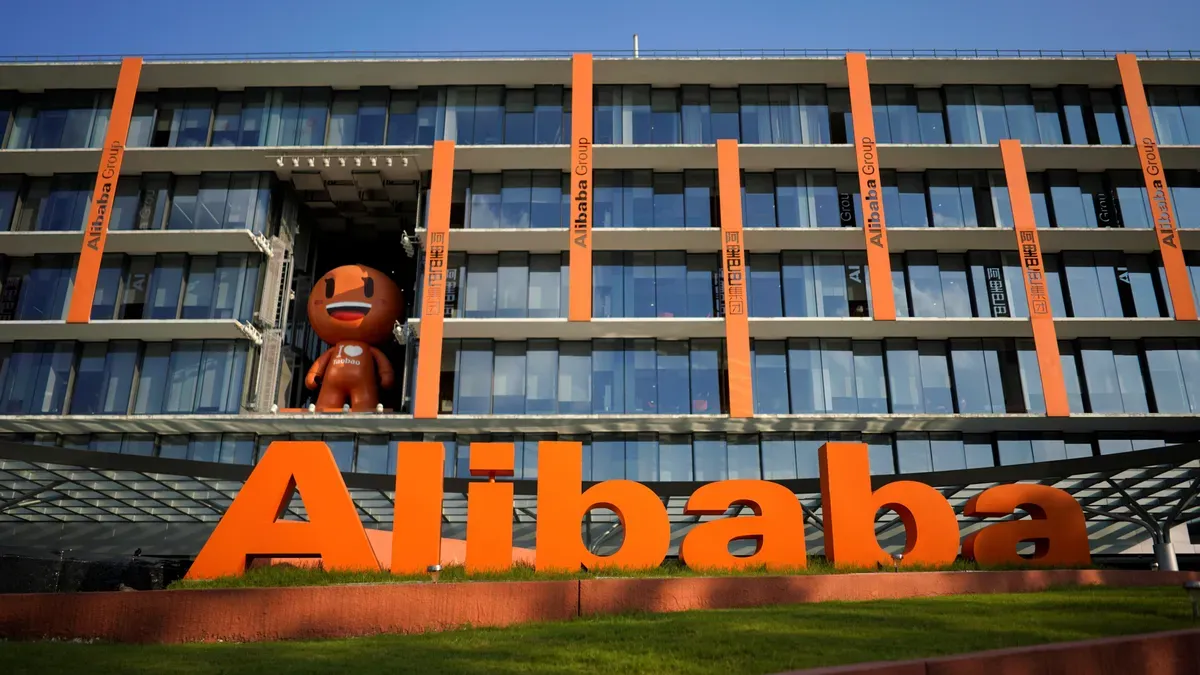Shares Of Alibaba Jump By 9% After The Company Splits Into 6 Units And Explores IPOs
In the biggest reorganization in Alibaba's history, the Chinese e-commerce giant announced on Tuesday it was splitting its company into six business groups, each of which will be capable of raising outside funding and going public, as part of the company's most significant restructuring.
The CEO and board of directors will each be responsible for the management of a given business group.
As Alibaba stated in a statement, the move was made "to unlock shares' value for shareholders as well as to foster the competitiveness of the market.".
Pre-market trade in the U.S. saw Alibaba's shares rise more than 9% before the market opened on Tuesday.
Alibaba has been suffering from a slowdown in its domestic economy over the past several years, as well as being subject to stricter regulation from Beijing, which has resulted in billions being wiped off its share price over the past few quarters, due to its struggles with growth.
As a result of this reorganization, Alibaba is now looking at reinvigorating its growth in the coming years.
This will lead to the formation of business groups centered around the strategic priorities of the company. These groups include:
- Cloud Intelligence Group: The Cloud Intelligence Group will be led by Alibaba CEO Daniel Zhang.
- Taobao Tmall Commerce Group: This will include Taobao and Tmall, which are both online shopping platforms provided by the company.
- Local Services Group: Yu Yongfu will hold the position of CEO of the company, and the company will be providing services such as food delivery and mapping through Alibaba's Ele.me service.
- Cainiao Smart Logistics: Alibaba's logistics service company, Cainiao Smart Logistics, will continue to be run by Wan Lin, and he will continue to be its CEO.
- Global Digital Commerce Group: The CEO of the company will be Jiang Fan. AliExpress and Lazada are among the businesses within this unit which are Alibaba's international e-commerce businesses.
- Digital Media and Entertainment Group: Alibaba's streaming and movie businesses will now be led by Fan Luyuan, who will take on the role of CEO of the unit.
According to Zhang, every unit will have the ability to seek independent funding, and they will each be able to list on the public market when they are ready.
In this regard, there is an exception to the rule, Taobao Tmall Commerce Group, which is still owned by Alibaba, as a whole.
Wreckage of $600 billion
The price of Alibaba shares has fallen by more than 600 billion dollars since the peak reached in October 2020. Since then, the Chinese government has introduced a slew of new regulations to limit private technology businesses and has intensified its scrutiny of private companies.
An antitrust investigation led by the U.S. Department of Justice in 2021 found that Alibaba's fintech affiliate Ant Group had violated the public listing rules and the company was fined $2.6 billion for it.
Having grown into the world's biggest e-commerce company, Alibaba has expanded into various business areas ranging from streaming and logistics to cloud computing and e-commerce. As a giant, the company is now looking to revive growth.
In its attempt to be more agile, the company aims to create six businesses in an effort to be more nimble.
Zhang explained in a statement: "This transformation is going to give us the ability to become more agile in all our businesses, to improve our decision-making, and to respond to market changes at a fast pace."
There is also a sense that Beijing may be developing a more favorable attitude toward technology businesses in recent months, as the government seeks to get the second-largest economy in the world to grow again.
In a move that could be viewed as an olive branch from the Chinese government, Jack Ma, Alibaba's outspoken and charismatic founder, has returned to China after traveling abroad for several months, out of the public eye.

Subscribe to our newsletter!
As a leading independent research provider, TradeAlgo keeps you connected from anywhere.








